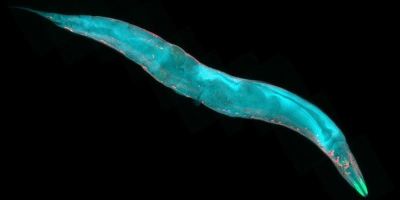Engineering mark success in postgraduate research

Three postgraduate researchers from the Faculty of Engineering have received awards at the 6th annual University of Leeds’ Postgraduate Research (PGR) Conference.
The annual university-wide postgraduate research showcase celebrates the significant contribution of postgraduate researchers and host competitions for four categories.
The ‘Gold encapsulated oil droplets’ (pictured) by Kirsty Stark, from the School of Chemical and Process Engineering, was awarded the Postgraduate Research Image of the year. Runner up in the PGR Poster of the Year was awarded to Joseph Norton (School of Mechanical Engineering) and Jaykrishnan Chandrappan (School of Chemical and Process Engineering) who came third in the Postgraduate Researcher of the year competition.
Jaykrishnan Chandrappan, who has previously won second prize at the Royal Society of Chemistry Emerging Technologies Competition for the same research explained “The new generation microchip technology being developed in my research could transform data communications by providing ultrafast, all-optical networks, supporting fibre optic broadband direct to the home.”
Second prize winner of the Poster of the Year award, Joseph Norton, who is investigating the design and manufacture of a mobile robot to diagnose and treat bowel cancer commented, “A device like this has the potential to diagnose cancer faster, more accurately and with less discomfort for the patient compared to conventional methods.”
Dr Danielle Miles, winner of the first PRG conference in 2010, was a judge for this year’s Postgraduate Researcher of the Year competition. Looking back on her own experiences of taking part in the competition, she says: “I benefited from the communication training and support I received in the run-up to Showcase competition. It was the first time I’d had to compose an impact statement, write an abstract and present a poster to a non-specialist audience. Impact is becoming more and more important in academia and taking the time to think through the impact of your research is really valuable. This competition helped me to think about the bigger picture of my research and its importance – it was a really uplifting, motivating and worthwhile thing to do.
“It also sparked my interest in public engagement. I believe that one of our jobs as scientists is to engage with as many people as possible, and Showcase provided me with numerous opportunities to enthuse and spread the word on my work. Participating in the competition helped to raise my visibility in the University and also enabled me to expand my professional networks outside my school and close academic circle.”
The competition winners were:
Postgraduate Researcher of the Year
Winner - Freddie Draper (Environment: Carbon storage and floristic dynamics in Amazonian peatland ecosystems)
Second - Elisabeth Dufton (Performance, Visual Arts and Communications: Is beauty only skin deep? designing cosmetics for delivery)
Third - Jayakrishnan Chandrappan (Chemmical and Process Engineering: A technology for ultrafast internet)
Postgraduate Research Image of the Year
Winner - Kirsty Stark (Chemical and Process Engineering: Gold encapsulated oil droplets)
Second - Dimitra Flouri (Mathematics and Leeds Institute of Cardiovascular and Metabolic Medicine: When mathematics meets medicine)
Three-Minute Thesis
Winner - Inga Julia Reichelt (Sociology and Social Policy: You are what you work?)
Second - Laura Wastall (Medicine: Why less is more in breast cancer)
Third - Kate Fox (Performance and Cultural Industries: Grin up north)
PGR Poster of the Year
Winner - Anastasia Alataki (Medicine: Reprogramming cancer cells: a new therapy for breast cancer)
Second - Joseph Norton (Mechanical Engineering: Could robots help diagnose cancer?)
Third - Claire Castle (Music: A light in the dark? The everyday music listening experiences of blind adults in the UK)
Highly commended - Philippa Hearty (Healthcare: Can peer-led interventions reduce smoking and improve diet and physical activity amongst prisoners) and Ged Doherty (Sociology and Social Policy: I'll be there for you? Responding to 'mate crime' and its effects on disabled people)




